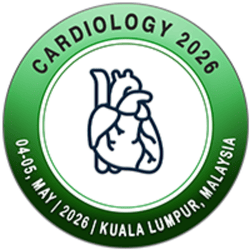_(1).png)
Mohammad Ashraf Uddin Sultan
Bangabandhu Sheikh Mujib Medical University, BangladeshPresentation Title:
Mitral annular Calcification and Cardiovascular Mortality
Abstract
Mitral annular calcification (MAC) is a degenerative change involving mitral valve annulus which has an increased cardiovascular mortality and morbidity. After first autoptic description, a diagnostic tool brought cardiac computed tomography (CT) scan to become the gold standard in MAC detection and classification. The Mitral annular calcifications has always represented an issue for cardiac surgeons, being it linked with an increased risk of atrioventricular groove rupture, circumflex artery injury, or embolism during Mitral valve surgery. As a consequence, different surgical techniques have been developed over time in order to reduce the incidence of these dreadful complications. Recently, transcatheter mitral valve replacement (TMVR) has emerged as a valid alternative to surgery in high-risk patients on the basis of TAVR. Both hybrid transatrial, transfemoral, or transapical approaches have been described to deliver balloon-expandable or self-expanding aortic transcatheter valves into the calcified annulus, with conflicting early and long-term results. Tendyne (Abbott Structural Heart, Santa Clara, CA, USA) is a promising transapical-delivered option. Early results have shown effectiveness and safety of this device in patients with MAC and severe mitral valve disease, with the lowest rate of embolization, mortality, and left ventricular outflow tract obstruction (LVOTO) reported so far.
Biography
Mohammad Ashraf Uddin Sultan has completed his MSS, MSc from Dhaka University, Dhaka, Bangladesh and MPH from Atish Dipankar University of Science and Technology, Dhaka, Bangladesh. He served as a Research Assistant in the Department of Cardiology of Bangabandhu Sheikh Mujib Medical University, Dhaka, Bangladesh. He has over 60 publications. He has been serving as an editorial board member (Contact Person) of University Heart Journal.


